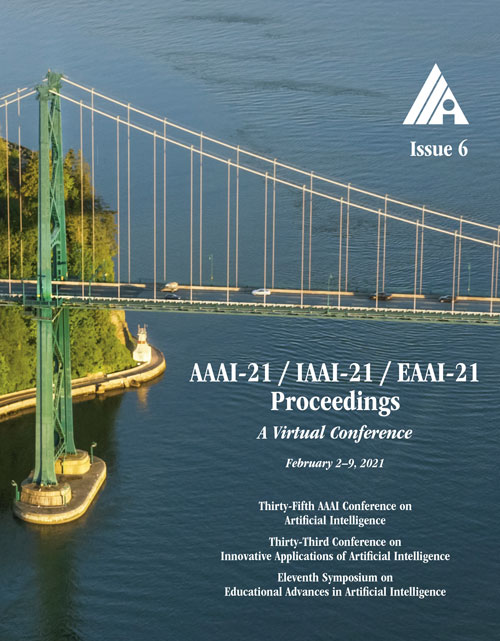Selfish Creation of Social Networks
DOI:
https://doi.org/10.1609/aaai.v35i6.16655Keywords:
Game TheoryAbstract
Understanding real-world networks is a core research endeavor within the last two decades. Network Creation Games are a promising approach for this from a game-theoretic perspective. In these games, selfish agents corresponding to nodes in a network strategically decide which links to form to optimize their centrality. Many versions have been introduced and analyzed, but none of them fits to modeling the evolution of social networks. In real-world social networks connections are often established by recommendations from common acquaintances or by a chain of such recommendations. Thus establishing and maintaining a contact with a friend of a friend is easier than connecting to complete strangers. This explains the high clustering, i.e., the abundance of triangles, in real-world social networks. We propose and analyze a network creation model inspired by real-world social networks. In our model edges are formed via bilateral consent of both endpoints and the cost for establishing and maintaining an edge is proportional to the distance of the endpoints before establishing the connection. We provide results for generic cost functions which essentially only must be convex functions in the distance of the endpoints without the respective edge. For this broad class of cost functions we provide many structural properties of equilibrium networks and prove (almost) tight bounds on the diameter, the Price of Anarchy and the Price of Stability. Moreover, as a proof-of-concept we show via experiments that the created equilibrium networks of our model indeed closely mimic real-world social networks. We observe degree distributions that seem to follow a power-law, high clustering, and low diameters. This can be seen as a promising first step towards game-theoretic network creation models that predict networks featuring all core real-world properties.Downloads
Published
2021-05-18
How to Cite
Bilò, D., Friedrich, T., Lenzner, P., Lowski, S., & Melnichenko, A. (2021). Selfish Creation of Social Networks. Proceedings of the AAAI Conference on Artificial Intelligence, 35(6), 5185-5193. https://doi.org/10.1609/aaai.v35i6.16655
Issue
Section
AAAI Technical Track on Game Theory and Economic Paradigms

